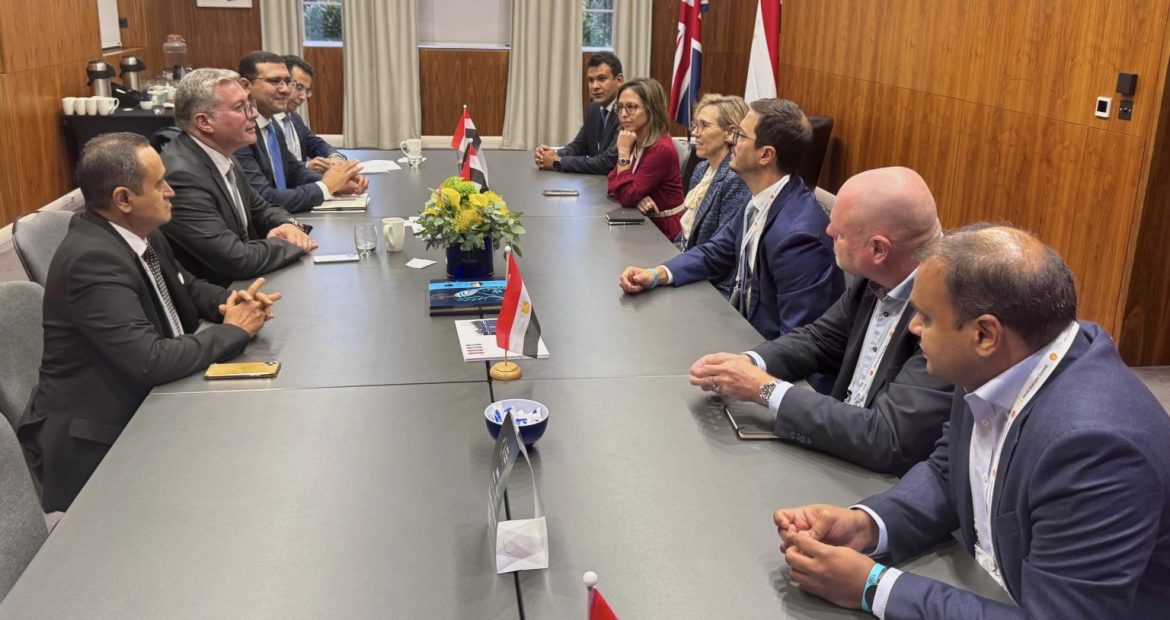KEY POINTS
- Egypt’s Petroleum Minister, Karim Badawi, held multiple meetings in London with top global energy companies to promote investment opportunities in Egypt’s oil and gas sector.
- Talks covered new exploration ventures, seismic survey projects, and expanded operations across the Mediterranean, Red Sea, and Western Desert.
- The discussions align with Egypt’s $5.7 billion plan to drill 480 new wells and boost output through fresh partnerships and discoveries.
Egypt’s Minister of Petroleum and Mineral Resources, Karim Badawi, used his participation at two major energy gatherings in London this week to champion Egypt’s expanding oil and gas opportunities, holding back-to-back meetings with some of the world’s leading energy firms.
On the sidelines of the World Energies Summit and the London Energy Forum, Badawi met with top executives to pitch Egypt as an increasingly attractive destination for upstream and downstream investments, particularly as the country doubles down on exploration in the Mediterranean and Red Sea.
Among his meetings was one with Hongwei Ma, Oversea Exploration Asset Coordinator at the China National Offshore Oil Corporation (CNOOC). The talks focused on possible collaboration in exploration and research, especially across Egypt’s Mediterranean and Red Sea regions. For CNOOC, the move marks its first potential entry into the Middle East, with Egypt positioned as the gateway to the region.
Badawi also met with Randy Neeley, CEO of Capricorn Energy, and Jeff Probert, its Chief Operating Officer. The discussion centred on Capricorn’s ongoing operations in Egypt through Badr El Din Company in the Western Desert and plans for expansion via the Egypt Upstream Gateway (EUG) platform, which facilitates new exploration licences.
Talks with Global Players Signal Cairo’s Push to Revitalise Exploration and Reverse Output Decline
In another session, the Minister engaged Terry Gebhard, Vice President of Exploration and Production at Woodside Energy, and Chad Ferguson, Head of Egypt Exploration. Both sides explored ways to deepen the Australian company’s footprint in Egypt. Woodside is already a partner in the North Dabaa and Thebes fields in the Mediterranean, and discussions touched on scaling up investment in these areas.
Badawi also met representatives of the Schlumberger-Vereden consortium, with talks focusing on the launch of an advanced seismic survey project in the Eastern Mediterranean. The project forms part of the ministry’s broader strategy to map out promising new discoveries and strengthen Egypt’s upstream data portfolio.
Similarly, discussions with Christian Johansen, CEO of TGS, highlighted ongoing seismic survey work in the Western Mediterranean, Red Sea, and southern Western Desert, which aims to attract further private sector exploration.
Badawi’s engagements extended to Pharos Energy CEO Catherine Roe, where both parties reviewed joint operations in the Western Desert and finalised procedures for awarding the South Abu Sennan block, Pharos’ newest Egyptian venture. They also discussed cooperation with IPR Energy Group on drilling new wells in North Beni Suef and enhancing output in the Fayoum Governorate, with a view to spurring more Western Desert investments.
Egypt’s petroleum sector, long seen as a cornerstone of the country’s economic stability, is showing signs of renewed momentum. The government recently unveiled a $5.7 billion investment plan to drill 480 new wells over five years, while exploration successes in the Western Desert and Mediterranean are beginning to reverse years of output decline.



